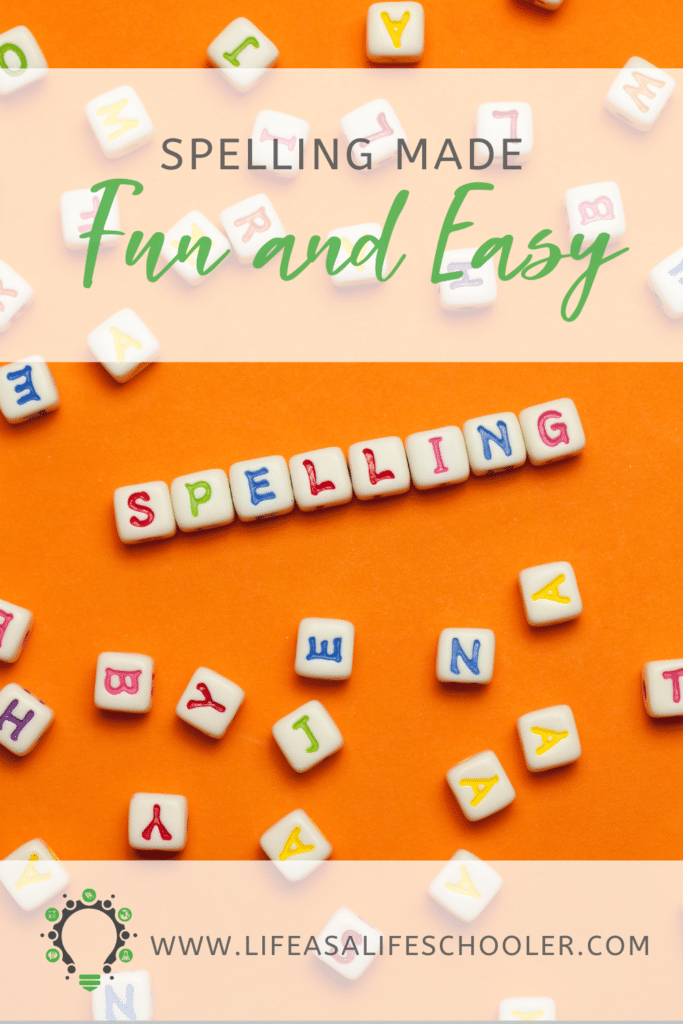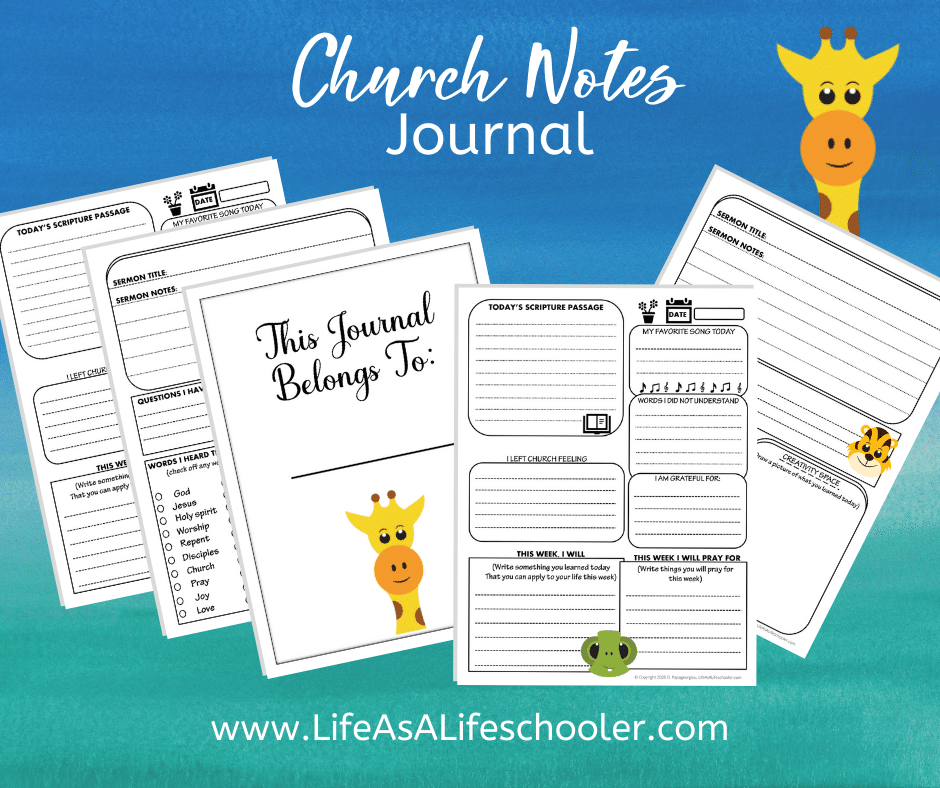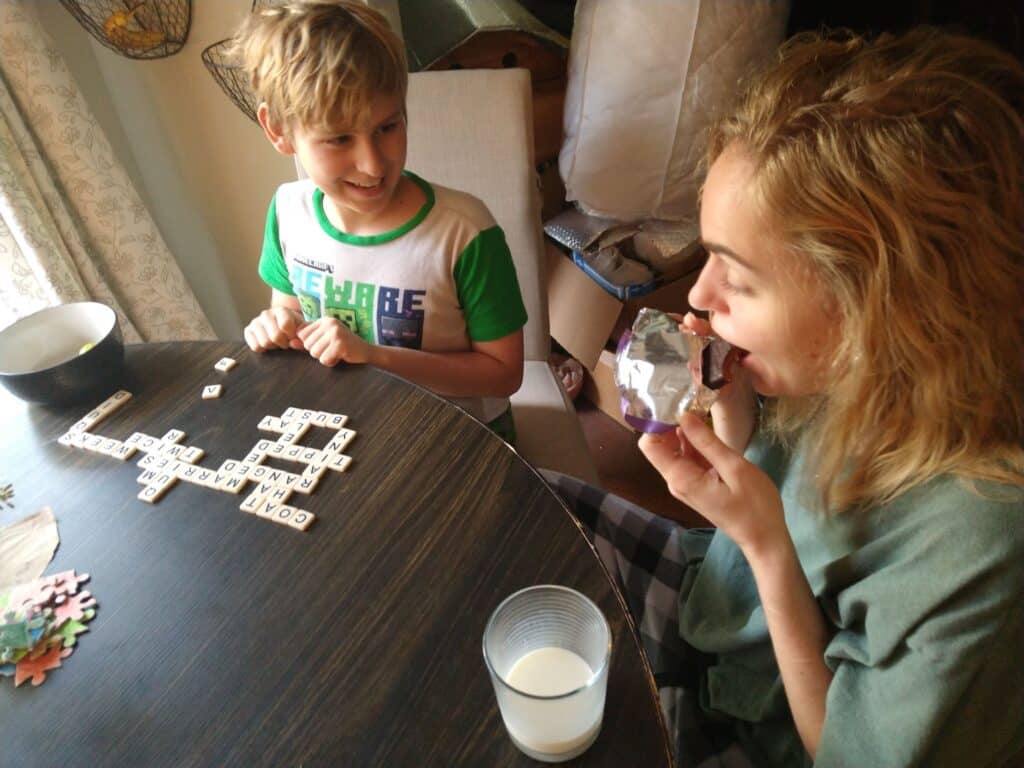Spelling Made Fun and Easy: Homeschooling Tips and Tricks for the Lifeschooler
In my 22 years homeschooling (or lifeschooling, as we like to call it), we have never had “homeschooling spelling” as a formal subject. I’m such a rebel! But it’s not because I don’t think spelling is an important skill. It is. And it’s not because I just don’t want to.
Okay, maybe it’s a little bit because I just don’t want to.
But mainly it’s because spelling is such a naturally learned subject if done in a lifeschooling manner. We interact with words every day, and exposure is a natural way to learn spelling. I think of it as similar to the immersion method of learning a foreign language. It’s a “learn by doing” approach.
However, I will admit that some intentionality is still required. Sometimes it’s simply being aware of the learning that is naturally happening to give you peace of mind and satisfy those record-keeping needs.
So if you are looking for creative ways to make spelling fun and engaging for your homeschooled children, I’m going to tell you how it’s done!
In this article, I’ll share some insightful tips and tricks that will help you take advantage of all those natural opportunities that arise for teaching spelling in everyday life, as well as some more structured opportunities for fun learning.
Let’s go!
The importance of spelling in homeschooling
Since I’ve already admitted to you that we never did spelling as an actual subject in our homeschooling, you may assume that we ignored the topic altogether, or that I don’t think it’s important. But that’s not the case.
If I have to see one more Craigslist ad for a “yard sell,” “rod iron bed,” or it’s counterpart, the “rot iron bed” (it’s WROUGHT, people!) I might just have to go on a Grammarly mass-donating rampage. These people need some serious intervention!
As I’ve said, I believe spelling is an important skill that helps them develop language proficiency, improve reading comprehension, and enhance their overall communication skills…and basically make them (and us) not look completely ignorant.
Oh, and play a better game of Boggle (though, to be fair, “better” is open to interpretation. We have some of the most hilarious games of Boggle with one of my spelling-challenged extended family members who shall remain nameless).
If given two equally-qualified candidates for a job position, which potential employee do you suppose someone would hire? The one who writes, “I would like to be hired for this position,” or the one who writes, “I would like to be highered for this position”?
Spelling is important, so we need to make sure it’s being naturally covered or find ways to incorporate it more intentionally.
Incorporating spelling into everyday lifeschooling activities
Even if you choose to have spelling as a subject in your homeschool, it doesn’t have to be limited to worksheets, spelling lists, and other, well, boring “schoolish” activities; it can be seamlessly integrated into everyday homeschooling lifeschooling activities.
By making spelling a part of your daily life, you can reinforce their learning and make it more practical. Here are some ideas to incorporate spelling into your homeschooling day:
1. Spelling What You Put Away
This is a simple activity that I came up with while putting groceries away one afternoon with my youngest, Korban. I told him to to spell out loud each item he pulled out from the grocery bag as he put it away. He really enjoyed the challenge! And I think the mental challenge of spelling in your head is helpful.
2. Label Items
Label objects around the house with their corresponding names. Encourage your child to read and spell the words as they interact with these items. This activity helps reinforce spelling while enhancing their vocabulary.
3. Write a Grocery List
This is a great lifeschooling activity combining learning with something you are already doing! Ask your child to help you create the weekly grocery list. Have them write down each item you need, as you dictate it to them.
This not only helps them with spelling skills, but also with the practical skills of planning (What ingredients are needed in the recipes? What will we run out of before the next trip?) and organizing (Where is this item in the store so we can order it properly on the list?).
4. Take notes in church
Taking notes in church is a great way to help train our children to listen in church, and spelling is a natural aspect that comes into play. Even if your child goes to the children’s program, I would encourage you to consider keeping them in church at least one or two Sundays per month so they can gain an appreciation of “big church.”
Believe me, they understand far more than you think! And concerning what they don’t understand, taking notes will give an opportunity for you to talk to them later about those things as you also go over misspelled words. Here’s a great Church Notes Printable for getting your kids started taking notes in church.
5. Write thank-you cards
This is a dying skill…and I’m sadly part of the mob helping to kill it, one missed card opportunity at a time. LOL. But it IS a good way to teach spelling, and it IS important. If you’ve also found it difficult to remember to write thank-you cards or encourage your children to, I do have one tool that has helped us and that is Send Out Cards.
I’m not as good as I should be, but when we DO send a card, this is our only hope for keeping the stamped and addressed envelope from sitting around for a week, waiting to be taken on its grand adventure, only to end up in the bottom drawer of my desk for 8 years. I’m not saying that’s ever happened…but I’m not denying it, either.
You can write the card online and the company will print it, put it in an envelope, and mail it for you! Not only does this give your child a chance to practice spelling in everyday life, but it is also a good way to practice typing skills. Try sending a card for free on me. 🙂
6. Have daily reading time
This is one of the most basic and easiest ways to teach spelling. By helping your children become avid readers, they will be constantly exposed to words and naturally learn how to spell. As I said before, it’s similar to the immersion method of learning a language.
This was one of the main ways my older two children learned, and I’m convinced it just works! But for those who don’t instantly take to reading, you may need to require a certain amount of reading time each day.
By incorporating spelling into your everyday homeschooling activities, you are lifeschooling! You are creating a natural and practical approach to learning. Remember to be consistent and make it a part of your daily routine to maximize the benefits.
Spelling and “Gameschooling”
I love the whole homeschooling concept of “gameschooling” and we tend to do quite a bit of this, especially when we’re feeling burned out or just needing a change of pace. So many games are educational by default, but we often don’t think about it. And usually those are the best kind because kids are learning without feeling any sort of pressure to do so and are, in fact, having fun!
Here are some common games that will help your children learn to spell in a lifeschooling way:
1. Scrabble
This is one of my favorite educational games because there are so many things that are learned naturally (addition, multiplication, vocabulary, spelling, dictionary skills, etc.) through playing Scrabble! Spelling is a vital skill to becoming a good Scrabble player. I suggest you also purchase a Scrabble dictionary so your kids can check the spelling of their words and also learn new ones at the same time.
2. Boggle
As I said, we’ve had many fun family times with Boggle and certain individual’s “creative spelling.” Since you often tend to see the same words over and over again, it can be great repetition to help kids learn spelling. You can also teach your kids to look for prefixes and suffixes to make their words longer and learn spelling rules for those.
3. Bananagrams
This is a fun little game where you race to make words with all your tiles before your opponents do. There are multiple ways to play and what’s really great is that it comes in an easily transportable pouch, so you can take this game with you anywhere.
We have been quite hooked on this game lately because of how quick and easy it is to play, and it spans the large age gap in our family, being enjoyable to our adult children, as well as our 12-year-old. But I also just found another version for younger kids that looks like a great option!
4. Word Bingo
This is a game you can easily make. Create bingo cards with different words. Call out the words, and have your child mark them on their card. The first one to get a line or a full card wins. This game not only improves spelling but also enhances listening skills.
By playing lots of games during your homeschooling days, you can make learning spelling a fun and natural process and get rid of the boring spelling lists!
Spelling apps and software for homeschooling
I know, I know…we usually want to see our kids on screens less, not more, so running to the spelling apps and software may not be our first inclination. But they do have their place and there is an abundance of spelling apps and software available to homeschooling parents, so it’s good to know about them for those times you need something easy.
These tools offer interactive exercises, personalized learning paths, and progress tracking. Here are some popular spelling apps and software that can be helpful in moderation:
1. Spelling Stage
This app offers a comprehensive spelling curriculum for children aged 5-15. It provides interactive lessons, practice exercises, and spelling games. Spelling Stage also tracks your child’s progress and provides detailed reports.
2. Words Rock
This online platform will help your kids develop skills in vocabulary, spelling, grammar, punctuation. I think the Agent Cards (funny little cartoon characters) they can earn is a cute and fun addition for motivating progress!
3. Starfall
Known for its interactive educational resources, Starfall offers a variety of spelling games and activities. It provides engaging animations, interactive exercises, and printable worksheets. Starfall’s spelling curriculum is designed for children in pre-K to grade 2.
These spelling apps and software can be a fun addition to your lifeschooling spelling activities for days when you just don’t have the brain power or energy for creativity.
Spelling competitions and challenges for homeschoolers
Now, if you have the competitive type, spelling competitions and challenges just may be the perfect way to motivate your homeschooled children to reach even higher in their spelling aspirations.
These events not only encourage healthy competition but also foster a sense of accomplishment and pride in being able to spell words like “sesquipedalian” (which, ironically, means “a person who uses long words,” so they can also take pride in actually being a sesquipedalian. Oh, and it’s also the title of a game sitting up on our shelf that I should really pull out again! So there’s another game recommendation for you. 😉 )
Here are some spelling competitions and challenges that your children can participate in:
1. Scripps National Spelling Bee
The Scripps National Spelling Bee is an annual competition that showcases exceptional spelling skills. Homeschooled children are eligible to participate in this prestigious event and, as the meme above implies, they often win! Check the competition’s website for eligibility criteria and registration details.
And if you’re in the mood for an inspiring spelling bee movie, check out The Girl Who Spelled Freedom. I seem to remember having watched this as a kid and really enjoying it! This YouTube edition is not the greatest quality, but hey, it’s free. You may be able to rent it somewhere, too.
2. Homeschool Spelling Bees
Many homeschooling groups organize their own spelling bees. These events provide a friendly and supportive environment for children to showcase their spelling abilities. Participating in a homeschool spelling bee can help build confidence and are a great way to connect with other local homeschoolers.
3. Online Spelling Challenges
Several websites and platforms offer online spelling challenges and competitions like this one. These events allow children to compete against peers from around the world. Pretty cool! Online challenges provide flexibility and convenience, allowing homeschooled children to participate from the comfort of their homes. (And you know how we homeschoolers love to do school in our pajamas!)
By participating in spelling competitions and challenges, homeschooled children can showcase their spelling skills, build confidence, and have a useful outlet for that competitive spirit. Ask your child if this sounds interesting and encourage them to pursue these opportunities if they have a desire.
Conclusion
Homeschooling spelling lessons don’t have to be monotonous or uninspiring or…”schooly.” Games, competitions, everyday life…there are so many opportunities to make spelling engaging and natural for your children! Remember that the most important thing is to preserve your child’s love of learning by keeping it fun, low-pressure, and tailored to their individual needs.
They will learn to spell naturally as you gently correct misspellings throughout everyday life and spend a little extra time being intentional with some of these tips. Pay attention and keep track. The learning is always happening! Happy lifeschooling spelling!
- The Book Writing Process: 5 Essential Tips (Plus a few more) - June 26, 2025
- Inspirational Missionary Stories for your Homeschool - March 5, 2025
- Tips for Building Healthy Relationships - February 17, 2025







